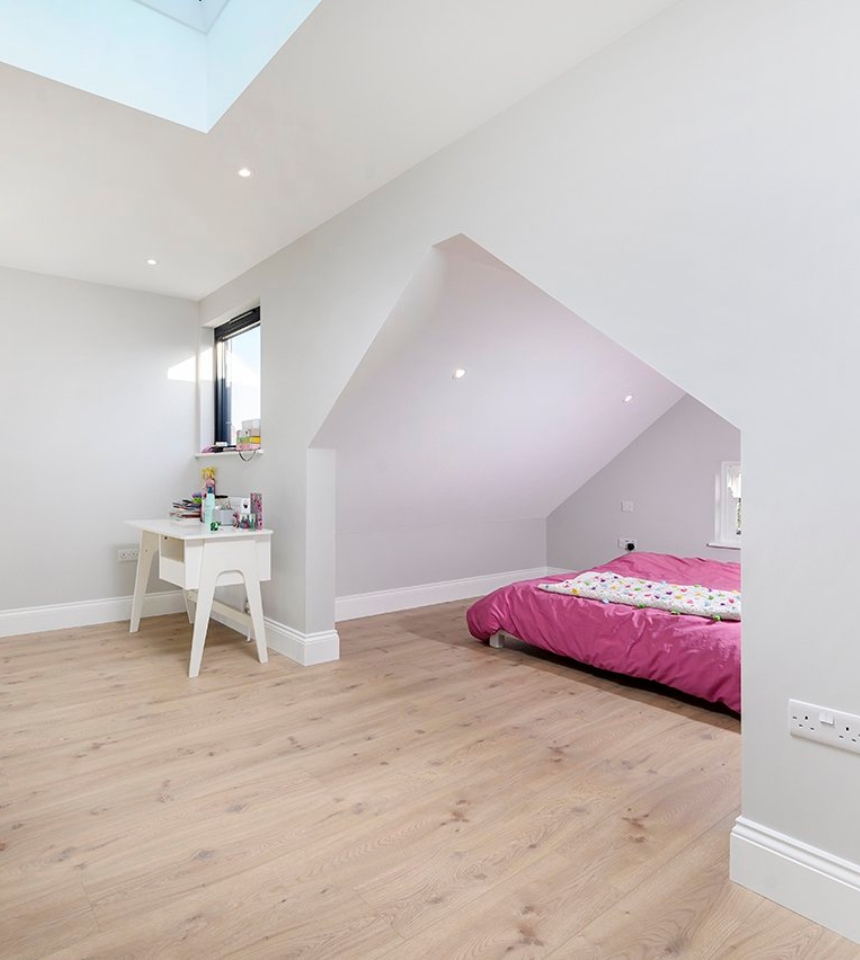
our approach aimed at maximizing productivity & efficiency.
Managing Director, LHB
London, a city of vibrant culture and bustling life, often presents homeowners with a unique challenge: maximizing living space. With property prices high, extending your home can seem difficult. A London lofts conversion offers a brilliant solution, transforming underutilized attic space into valuable living areas. Whether you dream of a spacious master suite, a dedicated home office, or a playful family room, a loft conversion can dramatically enhance your London property and lifestyle. This comprehensive guide delves into everything you need to know about conversions project in London, from construction project permission to choosing the right expert loft conversion builder. We also offer insights into extensions, conversion projects, and conversion ideas to help you visualize your dream loft.
Why Choose a Loft Conversion in London?
London’s housing market is competitive. The desire for more space is a common aspiration for homeowners. Moving to a larger property can be costly and disruptive. A loft conversion presents a compelling alternative, allowing you to expand your living space without the hassle of relocating. It’s a cost-effective way to add value to your property and create the home you’ve always envisioned. A well-executed loft conversion can transform a cramped house into a spacious and comfortable home. Many homeowners in south London and across the city are choosing loft conversions to improve their living spaces. From Hackney to Harrow on the Hill & Brent Park to Green Park homeowners are seeing the benefits.
The demand for conversions project in London is constantly growing, driven by the need for flexible living spaces. Whether you’re a growing family, a professional working from home, or simply seeking extra rooms to relax, a loft conversion can unlock the hidden potential of your property. Choosing the right company for loft conversion in London is crucial for a successful project. Experienced loft conversion specialists ensure quality workmanship, adherence to regulations, and a smooth experience. We’ve helped many homeowners with their London loft projects.
What is a Loft Conversion?
A loft conversion involves transforming the unused space within your roof into a habitable living area. This process can range from simple rooflight conversions, which maximize natural light, to more complex dormer loft conversions or mansard loft conversions that significantly increase headroom and floor space. Understanding the different types of loft conversions is essential for making informed decisions. Many loft conversions start with a simple idea for a new room in the loft.
Types of Loft Conversions:
Factors to Consider When Choosing a Attic Conversion Type:
Navigating the House Renovation Process
Undertaking a absolute lofts conversion project in London involves several key steps, from initial planning to the final finishing touches. Understanding the process and navigating the regulations is crucial for a successful project.
Planning Permission:
Planning permission is often required for loft conversions, especially for those that alter the external appearance of your property, such as dormer or mansard conversions. It’s essential to check with your local council regarding planning regulations and whether your proposed conversion requires permission. The planning process can be complex, and seeking professional advice from a planning consultant or architect can be beneficial. We can help you with the building permission process.
Building Regulations:
In addition to permission from council, your loft conversion must comply with building regulations. These regulations cover various aspects of the project, including structural safety, fire safety, insulation, ventilation, and drainage. Working with a qualified builder who is familiar with building regulations is essential for ensuring compliance.
Choosing a right London Loft Conversion Specialists:
Selecting the right construction company is paramount for a successful project. Look for experienced loft conversions builder in London with a proven track record of delivering high-quality loft conversions. Consider the following factors when choosing a company:
Attic Conversion Cost:
The conversion cost of a loft conversion varies depending on several factors, including the size and type of conversion, materials used, and the complexity of the project. It’s essential to obtain accurate quotes from reputable loft conversion companies and factor in additional costs such as planning permission fees, building regulations fees, and professional fees. We offer competitive pricing on loft conversions.
Ideas and Inspiration
A loft conversion offers endless possibilities for creating the living space you’ve always dreamed of. Here are some inspiring conversion idea for your loft conversion:
A kitchen extension can also be incorporated into some loft conversions, creating a stunning open-plan living area. Many homeowners are choosing to extend their kitchen as part of their loft conversion project. We can also help with kitchen extensions.
Understanding the Details of Your Loft Conversion
Once you’ve chosen a home builder, it’s essential to discuss the details of your project, including:
Loft Space Optimization:
Maximizing the available loft space is crucial. Consider using clever storage solutions, such as built-in wardrobes and shelving, to make the most of the space.
Materials and Finishes:
Choose high-quality materials and finishes that complement your existing home and create the desired aesthetic.
Timeline for a Attic Conversion Projects:
The timeline for a loft conversion project varies depending on the size and complexity of the project. Your chosen company should provide you with a realistic timeline for the completion of the work.
Project Excellence
We have a track record of completing 95% of our projects within the agreed timeline.
Trusted Builder
We received a 5-star rating on Google and an ‘Excellent’ rating on Trustpilot.
service related FAQ’s
To apply for house extension permission, you need to contact your local planning authority (LPA) through your local council, submit a planning application through the Planning Portal online, providing detailed architectural drawings of your proposed extension, including site location plans, floor plans, elevations, and any necessary supporting documents, and pay the application fee; it’s highly recommended to consult an architect or planning consultant beforehand to ensure your design complies with local regulations and has a higher chance of approval.
LHB help you to get planning permission, get in touch with us today!
Yes, you can build an extension on a shared ownership house, but you need to get permission from your landlord first. You should also check your lease and make sure you have the necessary planning and building control permissions.
Based on an average rear extension size of 45m², the typical cost of a ground floor rear extension in London ranges from £85,500 to £135,000. In the rest of the UK, the average costs fall between £74,250 and £117,000.
Using these averages, you can estimate the likely cost of your rear extension with the following figures:
- £1,900: Average lowest cost per m² for rear extensions in London and the South East
- £3,000: Average highest cost per m² for rear extensions in London and the South East
For example, if you’re planning to build a small rear extension of 30m², the cost in London is likely to range from £57,000 to £90,000.
So, why is there such a wide range in costs? The final price largely depends on the complexity of the build, including factors such as the type of roof and finishes you choose, the materials used, and the construction company you select to carry out your design.
We highly recommend to get in touch via our project consultant to receive a free quote for your project.
There is no guaranteed timeline for any residential extension project. The duration can vary significantly based on the size and scope of the extension, typically ranging from 7 to 15 months, and in some cases, it may take even longer. This variability is due to the numerous processes and professionals involved, as well as unpredictable factors such as inclement weather and challenging neighbours.
Use below calculator to estimate worth of your extension according to ONS data
Brought to you by Office for National Statistics


